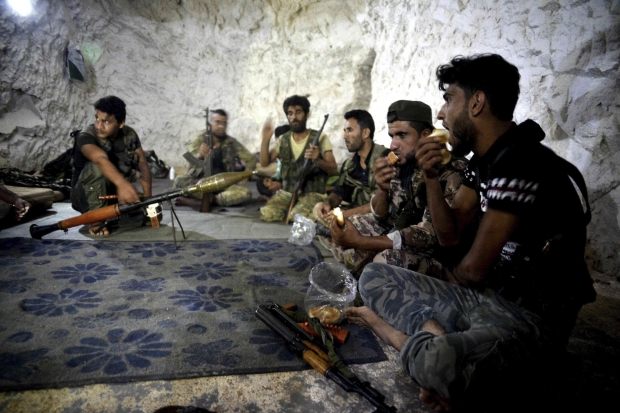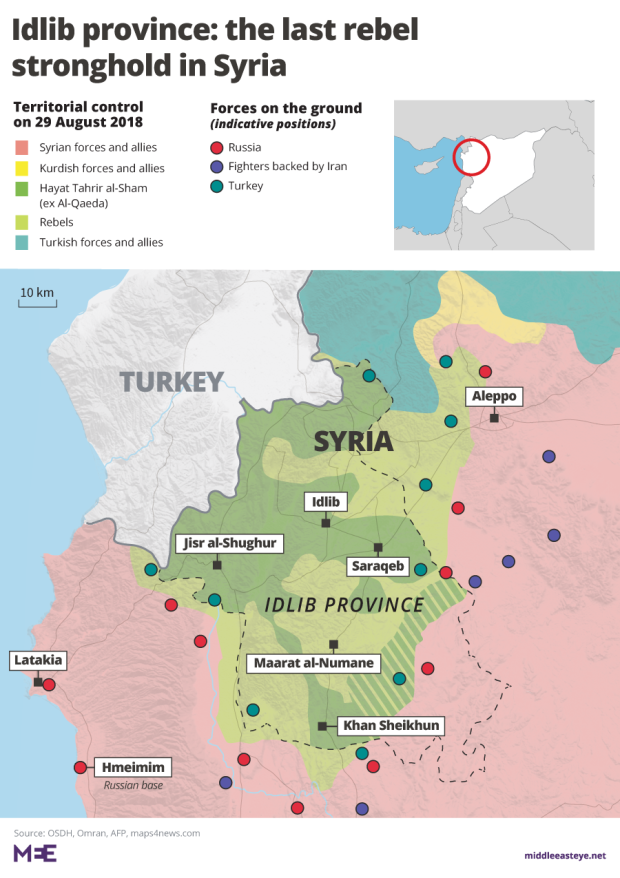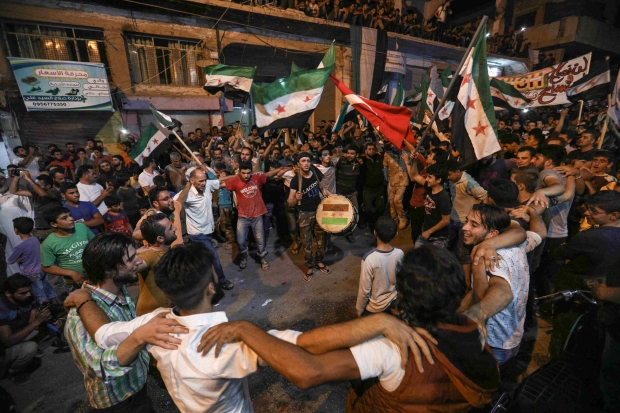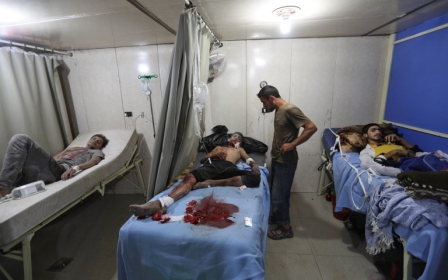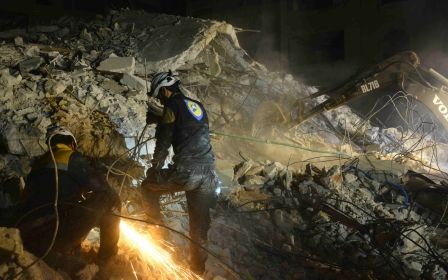Idlib deal: Sweet relief tempered by scepticism in Syria's rebel province
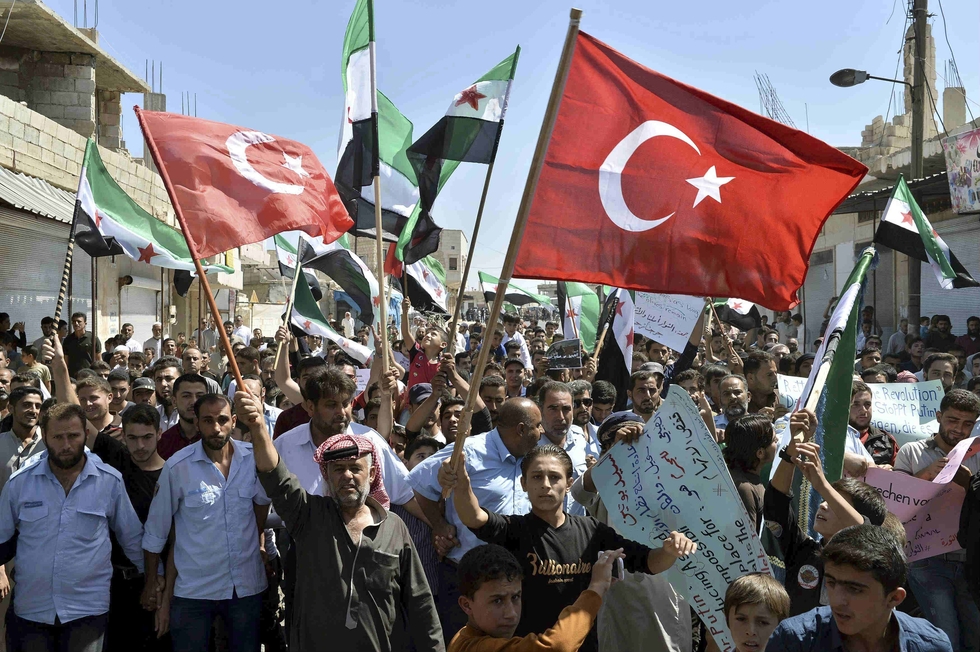
IDLIB CITY, Syria – Before meeting his Russian counterpart in a landmark summit on Syria on Monday, Turkish President Recep Tayyip Erdogan promised “new hope” for the rebel-held province of Idlib.
And new hope the people there have been given, as Erdogan and Vladimir Putin thrashed out a deal that for now appears to have staved off a Syrian government assault that would have had catastrophic humanitarian consequences for the province and beyond.
Idlib, the last major opposition bastion after sweeping gains made by President Bashar al-Assad’s forces and their allies, holds as many as 3 million people, including some 60,000 rebel fighters.
Turkey, which backs many of the more moderate rebel groups in the northern province that lies on the Turkish border, secured a 15-20km buffer zone between rebels and pro-government troops and a promise that Damascus, whose forces are backed by Russian air power, would not stage a fresh offensive.
For many of the Ankara-backed rebels, it looks like their ally has come up with the goods just when an assault seemed inevitable.
“In general the Sochi agreement was a success of Turkish diplomacy,” Captain Naji Mustafa, spokesman for the National Liberation Front – a gathering of rebels – told Middle East Eye.
Mustafa, however, was not prepared to let Ankara take all the credit for Russia’s willingness to arrange a ceasefire, and said the agreement was particularly successful because the Russians witnessed the unity and combat readiness of the rebel factions.
“The popular cohesion between the revolutionary forces and civilians in the province of Idlib weakened Russia's position and forced it to back down from its military decisions,” he said.
However, its absence in the key talks was noticeable – a fact Shadi al-Assouli, a rebel belonging to the Saraqib Revolutionary Front, puts down to Russia’s domination of its affairs.
"Damascus no longer has any military decision except with the approval of Russia,” he told MEE.
Despite that, Assouli said, the rebels have witnessed no withdrawals from Syrian army positions. “On the contrary, there are constant maneuvers around the region that I think are a show of strength.”
Devil in the details
Amidst the jubilant scenes witnessed in Idlib, scepticism remains.
Russia and Turkey have reached agreements on Syria in the past, most noticeably the 2017 de-escalation agreement, which was supposedly designed to end aggression in four key areas of the country.
Instead the opposite happened, and one by one the de-escalation zones – Eastern Ghouta, Daraa, northern Homs and Idlib – came under attack by pro-Syrian government forces and Russia.
We do not rely on Russian agreements as they lie and deceive, and have not abided by their commitments
- Naji Mustafa, rebel spokesman
“We do not rely on Russian agreements as they lie and deceive, and have not abided by their commitments,” Mustafa said.
“We will continue to prepare and train the fighters on an ongoing basis, in order to face all threats that may occur in the future.”
And while the Syrian rebels believe Moscow cannot be relied upon to honour its agreement, they have some reservations too about Turkey’s ability to implement some of the more complicated aspects of the pact.
As ever with Syria, the devil is in the detail, and just how Ankara intends to separate the rebel groups it finds acceptable from those it finds unacceptable, remove heavy weapons from the frontlines and eventually disarm the oppostion altogether is unclear.Assouli said: "I think that the heavy weapons will be withdrawn into central Idlib or to the Syrian-Turkish border, without handing over to Turkey, and we will remain ready for any military action if Damascus tries to breach the agreement - we have a significant military force.”
New life
Nonetheless, Monday’s announcement came as sweet relief for Idlib’s civilians.
Mohamed Mayouf, who helps Syrians develop skills in Idlib’s Department of Small Projects and works with several NGOs in the town of Jarjnaz, said the province’s south had been gripped by fear.
“This fear led to a mass exodus from the cities and towns surrounding the fronts, as well as the closure of many shops, and the region suffered from a severe economic and commercial stagnation,” he told MEE.
“Everyone began to limit their own expenses to save money, fearing that the situation would turn worse.”
In the past two days thousands of Syrians displaced by the bombardment or fear of bombing that preceded the Russia-Turkey deal have returned to their homes, according to the Syrian Observatory for Human Rights activist group.
"Around 7,000 people have returned to their towns and villages since the announcement of the deal on Monday, especially in the southeast of Idlib and the north of [neighbouring] Hama," Rami Abdurahman, head of the UK-based group, said.
I hope the agreement works, so I can offer training programs for education, instead of nursing and first aid
- Ehad al-Haj, humanitarian worker
Maylouf predicts a new lease of life will be witnessed in the province.
“Everyone's business will improve,” he beamed. “The cessation of military campaigns on the region is great and will improve economic, commercial and agricultural conditions, and increase the activity of humanitarian organisations.”
“We are making efforts to train civilians for professional work, to develop their skills and work in a way that helps trainees to rely on themselves,” he added.
“The end of fear of air and land attacks will restore the wheel of life to the Syrian mother, who is afraid to take her son to learn at school, or to get a vaccine in the hospital,” she told MEE.
In recent weeks the centres Haj runs have been largely cut off for most of the Syrian women who went to develop skills there, and those who did make the perilous journey have only sought training in first aid.
“I hope the agreement works,” Haj said, “so I can offer training programs for education, instead of nursing and first aid.”
This article is available in French on Middle East Eye French edition.
New MEE newsletter: Jerusalem Dispatch
Sign up to get the latest insights and analysis on Israel-Palestine, alongside Turkey Unpacked and other MEE newsletters
Middle East Eye delivers independent and unrivalled coverage and analysis of the Middle East, North Africa and beyond. To learn more about republishing this content and the associated fees, please fill out this form. More about MEE can be found here.


